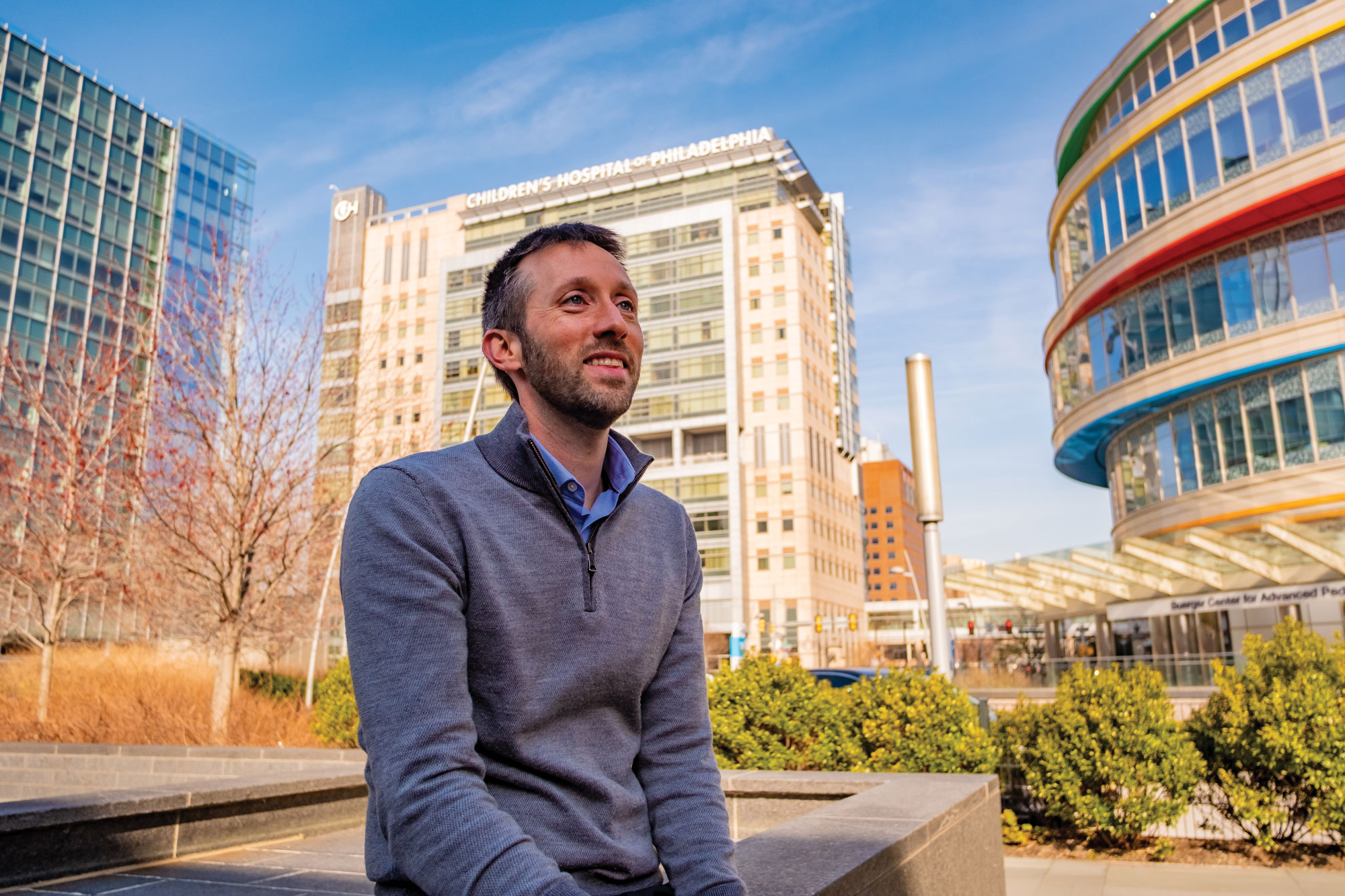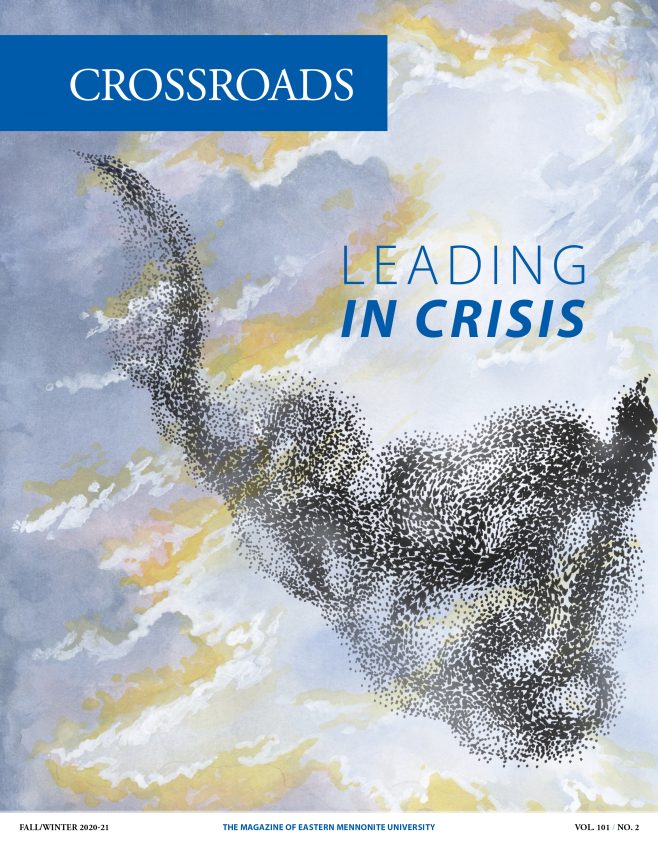
John Neiswander ’05 works in medical interpreting and Global Patient Services at Children’s Hospital of Philadelphia.
JOHN NEISWANDER ’05 makes his living through speech, but he remembers clearly one time when words simply failed him. A young patient at Children’s Hospital of Philadelphia had been pronounced brain dead following a tragic house fire, and Neiswander needed to interpret an exchange between the doctor and the desperate, anxious parents.
“Suddenly, I could not get the words out. I could not speak. I remember trying to say the words, but I just couldn’t,” he said.
He finally gathered his composure to be a calming presence in that tense moment. But he has also been present in times of joy, such as when a young patient with new cochlear implants heard for the first time and his mother began to cry.
“Being in those spaces with the parents…it’s an honor, it’s sacred space,” he said, and sometimes the gratitude shown by parents is overwhelming.
Neiswander currently works in Global Patient Services at CHOP, one of the nation’s top pediatric hospitals and a leading innovator in providing language access to patients and their families. He helps to process international patients, collects medical records, corresponds with families, facilitates intake, and aids in scheduling appointments and interpreters.
Neiswander traces his earliest interest in language acquisition to a middle school mission trip to Costa Rica.
“I realized there were a whole lot more people I could talk to if I learned Spanish,” he said.
At EMU, his interest took on new meaning. His cross-cultural to Guatemala and his coursework as a business major and Spanish minor “helped to focus my values and beliefs and hone my awareness of those who don’t always have an audible voice, those who can’t speak for themselves, or simply aren’t heard,” he said.
Now, his role allows him to “hear and amplify those voices.”
His introversion is helpful, too. The best interpreters, Neiswander said, blend “into the background,” becoming vessels through which accurate meaning is exchanged. The moral imperative, he believes, is providing children and their parents with equal access to top-quality medical care and the opportunity to live healthy lives.
But all too often, that does not happen. In the last five years, CHOP has doubled its interpretation services – in 2018, they were used in more than 110,000 in-person or phone encounters there – but most other medical facilities around the country are grossly unprepared to serve nonnative speakers, Neiswander said. That’s in spite of the fact that health outcomes are proven so much better for patients who can communicate in their native language.
“Think of what is missed when you’re not able to express yourself in your native tongue,” Neiswander said. “I remember being with a family who had lived in South Philly for 15 years and here at CHOP was the first time they had ever been offered a personal interpreter. Now they could fully express themselves through us to the physician. Their gratitude was immense, because we were respecting them as parents and giving them the opportunity to care for their child in the best possible way.”
Though Neiswander does less daily interpreting in his current role, he liaises frequently with colleagues in his former department, Language Services, comprised of 30 full-time, nationally certified medical interpreters, among them speakers of Spanish, Arabic, Cantonese and Mandarin, French and Portuguese.
Neiswander accomplished national certification himself after years of immersion and study – from his one-year term with Mennonite Central Committee SALT program, to a voluntary service position with a nonprofit organization in Texas, and to La Salle University for a certificate in Spanish interpretation – a professional journey rooted in a teenager’s first experience of meeting and helping strangers.
